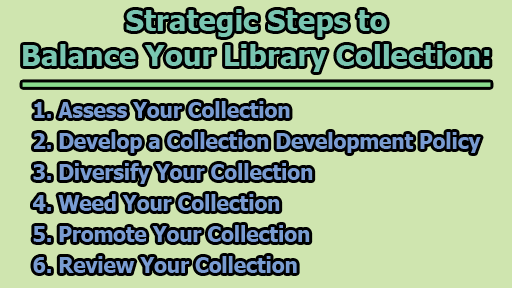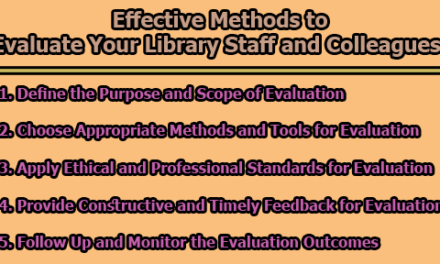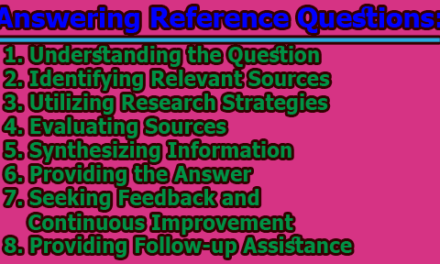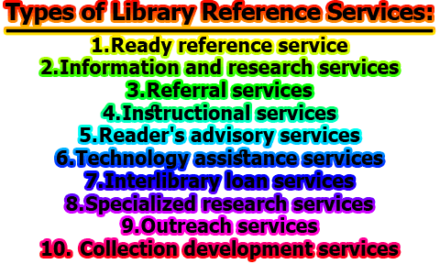Strategic Steps to Balance Your Library Collection:
Balancing a library collection is a crucial aspect of providing exceptional service to library patrons. It ensures that the resources available reflect the needs, interests, and diversity of the community, aligning with the library’s mission and goals. In this article, we will explore some of the strategic steps to balance your library collection.
1. Assess Your Collection: The first step in maintaining a balanced library collection is to assess its current state. Various tools and methods can be employed for this purpose. This includes analyzing circulation statistics, conducting user surveys, creating collection maps, performing gap analysis, and benchmarking. These tools help library professionals identify the strengths and weaknesses of the collection, as well as understand the evolving trends and demands of their patrons. Additionally, comparing the collection to other libraries, standards, or guidelines provides valuable insights.
2. Develop a Collection Development Policy: The second step is to establish a comprehensive collection development policy. This document outlines the principles, criteria, and procedures for selecting, acquiring, maintaining, and weeding items in the collection. It is essential to define the roles and responsibilities of staff involved in collection management and allocate the necessary budget and resources. A well-crafted collection development policy ensures consistency in decision-making and communicates the library’s goals and expectations to stakeholders.
3. Diversify Your Collection: Diversity in the library collection is vital to cater to the varied needs and interests of the community. This means providing a wide range of formats, genres, topics, perspectives, and languages. Library professionals can source diverse materials through a multitude of means, including reviews, recommendations, awards, catalogs, vendors, consortia, and donations. Collaboration with other libraries, organizations, or groups can also expand access to diverse resources, enriching the collection.
4. Weed Your Collection: Weeding, or the process of regularly removing outdated, damaged, duplicated, or unused materials from the collection, is a critical step in maintaining balance. Weeding optimizes library space, improves circulation, enhances visibility, and ensures the collection remains relevant. Library professionals can utilize various criteria and tools, such as usage statistics, condition reports, checklists, and guidelines, to effectively weed the collection.
5. Promote Your Collection: Effective promotion of the library collection is key to increasing patron awareness, accessibility, and appeal. Various strategies and channels can be used for promotion, such as displays, newsletters, social media, podcasts, blogs, book clubs, and events. Additionally, involving patrons in the promotion process, inviting them to share their feedback, suggestions, or reviews, fosters a sense of community and inclusiveness.
6. Review Your Collection: Periodic review of the library collection is essential for monitoring performance, impact, and patron satisfaction. This step also helps in identifying areas for improvement or change. Utilizing measures and methods such as statistics, surveys, reports, feedback, and audits is crucial in this process. Seeking input from staff, patrons, or experts can provide valuable insights. Regular reviews enable library professionals to adjust goals, policies, and practices, while also celebrating achievements and successes.
In conclusion, balancing a library collection is a multifaceted process that requires careful planning, assessment, and maintenance. By following these six essential steps, libraries can ensure their collections remain relevant, diverse, and engaging for their patrons. A well-balanced collection not only supports the library’s mission but also fosters a sense of inclusiveness and community engagement, ultimately enhancing the overall library experience.

Library Lecturer at Nurul Amin Degree College










